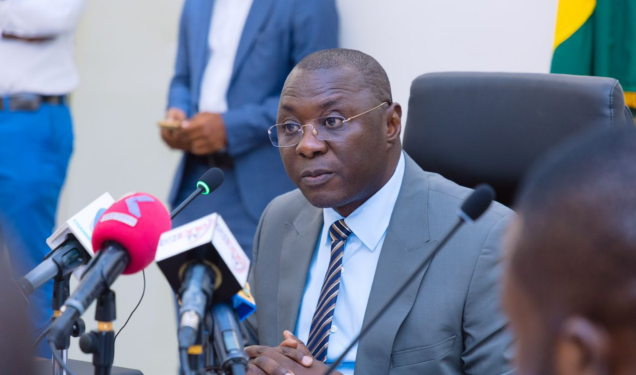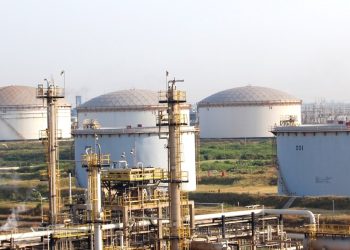Ghana’s Finance Minister, Dr. Mohammed Amin Adam, has reassured Ghanaians that the government is taking decisive action to prevent a potential drought-induced food shortage from derailing the country’s ongoing $3 billion IMF-supported programme.
Speaking during the Ministry’s 5th Edition of the Monthly Economic Update, Dr. Amin Adam emphasized the importance of these measures in maintaining the stability of the economy.
Ghana has already received $1.6 billion following a successful second review of the IMF programme.
To mitigate the risks posed by the potential food crisis, the government has introduced several key interventions. Among these are a ban on grain exports and the implementation of a relief package totaling GHS 8.3 billion ($522 million).
“We are mindful of the negative impact of the dry spell on agricultural production, food security, jobs, income, and investment of farmers, but also on macroeconomic fundamentals such as GDP and food inflation, among others.
“Government has put in place some emergency measures as a result of this to mitigate the impact of the spells on livelihoods and on the economy in general, and to prevent food shortage in the country. We are working hard to ensure that this near-drought condition does not disrupt the country’s IMF-supported programme and the government is implementing some interventions to avert the crisis and mitigate the impact of the crisis on Ghanaians and on the economy,” he quipped.
“The interventions include a temporary ban on exports of selected grains, including maize, rice, and soybean; mopping up stocks from local farmers to ensure that farmers do not suffer adversely from this ban; importation of grains, including maize and rice, and poultry feed to stock up; drought relief support, where cash transfers will be provided to the affected vulnerable farmers to partially compensate their losses; and input support, where affected farmers in the north and in the south will be provided with inputs to enable them to replant when the rain starts and to boost production during the minor season in the southern part of our country. These inputs include fertiliser, urea, maize seeds, and rice seeds. The total cost of these proposed interventions is estimated at GHS 8.3 billion, the equivalent of $522.2 million,” he added.
Speaking further, Dr. Amin Adam highlighted the government’s commitment to long-term solutions, including significant investments in the development of irrigation facilities, small dams, and boreholes in the drought-affected regions.
These efforts, he asserted, aim to expand crop production and enhance resilience against future droughts.
The drought-affected regions are Northern, Upper East, North East, Savannah, Upper West, Bono, Bono East, and Oti.










Discussion about this post